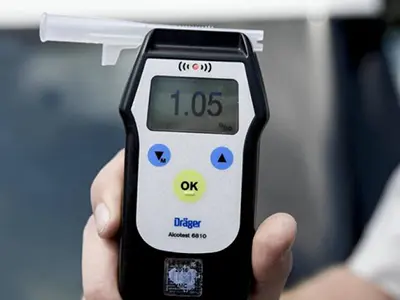
In the field of administrative law, there exists a highly specific and, for many, non-obvious rule that can radically impact the fate of virtually any driver who strictly adheres to legal requirements. The essence of this case lies in the establishment of an absolutely identical degree of liability for actually driving a vehicle while intoxicated and for simply failing to comply with a police officer's legal demand to undergo a medical examination. Even if a citizen is completely sober and has not consumed any prohibited substances, a mere refusal to undergo a medical examination, officially recorded by an inspector, is automatically equated by law to intoxication, which inevitably entails the application of the full severity of the sanctions stipulated by the Code of Ukraine on Administrative Offenses, regardless of the individual's actual innocence.
Article 130 of the aforementioned Code establishes an absolutely identical measure of legal action for both a driver who was actually under the influence of alcohol and for a person who, due to their own reasons or confusion, failed to comply with an order to undergo a medical examination. The penalty imposed under this article includes a substantial fine and a lengthy suspension of the driver's license to drive any vehicle, creating virtually insurmountable difficulties for those whose daily professional activities or lives in general are closely tied to driving. Crucially, the refusal itself constitutes a full-fledged administrative offense, meaning that even a completely sober citizen can face the full penalties prescribed by law for those objectively driving while intoxicated.
Under current legislation, a patrol police officer is authorized to demand a medical examination only in the presence of clearly defined and objective signs of intoxication, as expressly stated in the relevant provisions of the current Traffic Regulations. If such signs are subjective or absent altogether, the driver may formally disagree with the inspector's actions. However, such a step is unlikely to promptly resolve the conflict in their favor, as established judicial practice tends to view a refusal as indirect confirmation of the person's guilt. The most reasonable and legally secure course of action in such circumstances appears to be a calm consent to undergo the required testing procedure, which must be accompanied by careful video recording of the entire process for potential subsequent appeal in court.
The legally established testing procedure is detailed in a joint order of the Ministry of Internal Affairs and the Ministry of Health, which requires the use of exclusively certified technical equipment, such as breathalyzers, directly at the scene of a vehicle stop or, at the insistence of the person being tested, in a specialized medical facility. The examination must be recorded on video or conducted in the presence of two disinterested witnesses. Any violation of these strict procedural requirements may subsequently serve as compelling grounds for challenging the results in court. If any reasonable doubts arise regarding the proper functioning of the device, the citizen has the full right to demand that the inspector present all accompanying documentation, including the certificate of conformity and the current certificate of state verification. In the event of fundamental disagreement with the device's readings, it is necessary to firmly insist on immediate referral to the nearest medical facility to obtain a final and objective conclusion regarding the state of intoxication.

